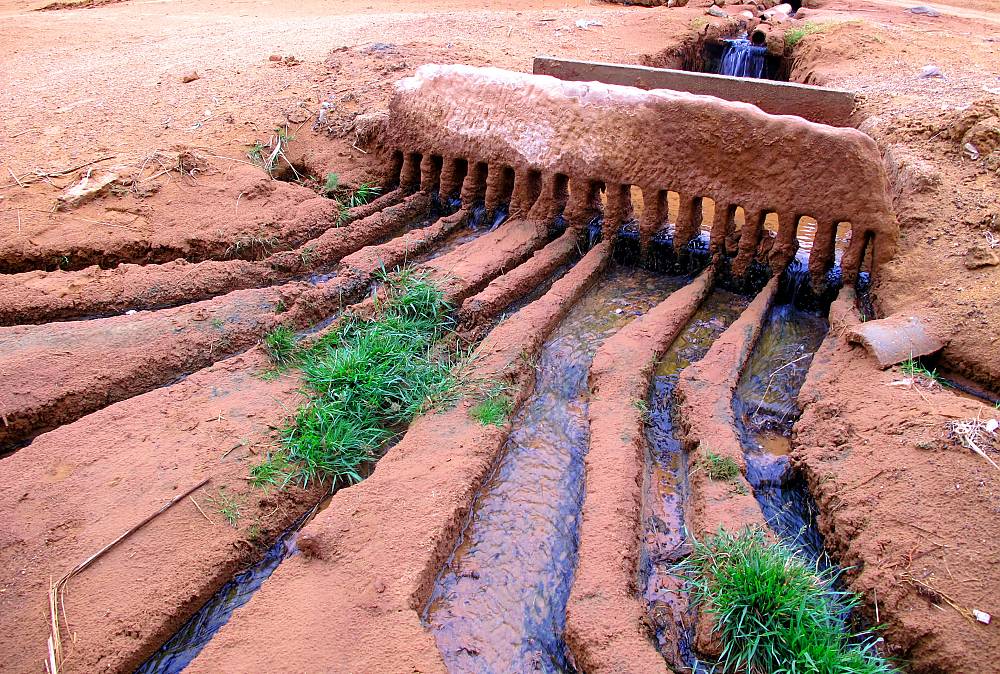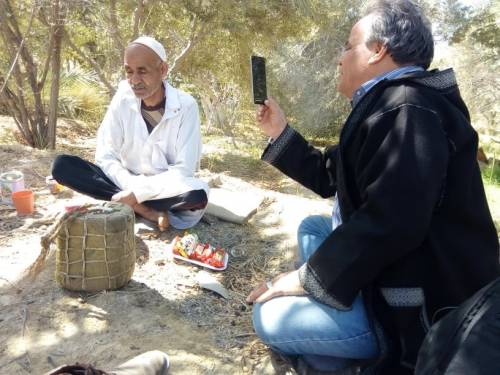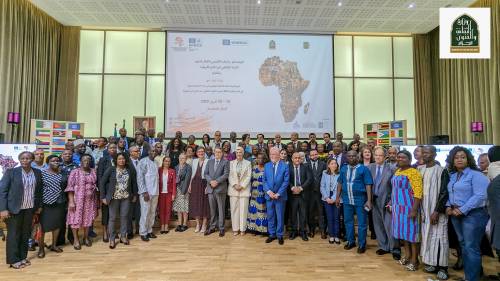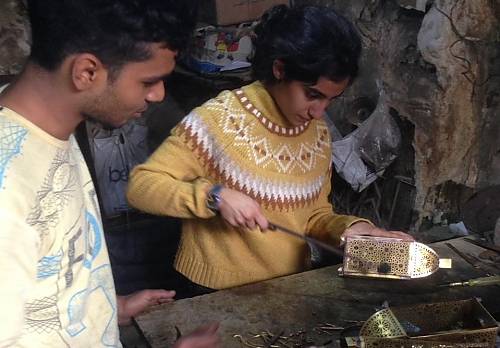28 November 2018
Meeting in Mauritius until 1 December, the Intergovernmental Committee for the Safeguarding of the Intangible Cultural Heritage, inscribed this morning seven elements on the List of Intangible Cultural Heritage in Need of Urgent Safeguarding.
The List of Intangible Cultural Heritage in Need of Urgent Safeguarding features elements of living heritage whose viability is under threat. It mobilizes international cooperation and assistance to strengthen the transmission of these cultural practices, in agreement with the concerned communities. The seven elements inscribed this morning are:
- Algeria—Knowledge and skills of the water measurers of the foggaras or water bailiffs of Touat and Tidikelt concerns the knowledge and skills of the water measurers of the foggaras, or water bailiffs, of the ksour communities of Touat and Tidikelt. As key figures in the community, water measurers are involved in various operations, from calculating water shares to repairing distribution combs and directing the flow of water into channels. Several factors have disrupted the proper functioning of the foggara, however, including a lack of communication between youth and elders, governmental changes to relations of ownership, and the effects of urbanization and modernization.
- Azerbaijan—Yalli (Kochari, Tenzere), traditional group dances of Nakhchivan are collective performances typically danced in a circle, chain or line. They involve games, pantomime (imitations of birds or other animals) and physical exercises and movements. The dances are performed spontaneously or in a planned manner during festivities, and free participation is one of their key principles. Several factors currently threaten the transmission of the dances including a shift from informal to formal transmission, a preference for staged performances, labour migration, and drastic simplification of the dances.
- Cambodia—Lkhon Khol Wat Svay Andet—Lkhon Khol Wat Svay Andet is performed by masked men to the accompaniment of music and melodious recitation in a community based around the Buddhist monastery of Wat Svay Andet. It aims to ensure the community’s protection and prosperity by winning the favours of Neak Ta, a guardian spirit of the place and its people. After generations of transmission, the element’s viability has been weakened by environmental factors, economic migration, insufficient resources and the effects of war and of the Khmer Rouge regime.
- Egypt—Traditional Hand Puppetry—, Al-Aragoz, an old form of Egyptian theatre using traditional hand puppetry, takes its name from the main puppet, whose distinctive voice is produced with the help of a vocal modifier. Perfomances, involving interaction with the audiences, offer comical entertainment drawing on a variety of themes from everyday life. Al-Aragoz is threatened by the changing social, political, legal and cultural circumstances of its enactment, however, and regular performances now rely on fewer than ten active practitioners, all of an advanced age.
- Kenya—Enkipaata, Eunoto and Olng’esherr, three male rites of passage of the Maasai community— Enkipaata, Eunoto and Olng’esherr are three interrelated male rites of passage of the Maasai community serving to educate young boys about a man’s role in society, transmit indigenous knowledge to the younger generation and induct them into moranhood, then into the category of young elders, and finally into senior elder status. The viability of the practice is threatened by changes in lifestyle relating to the Maasai community’s transition from a pastoral to an agricultural economy and the decline in informal modes of transmission.
- Pakistan—Suri Jagek (observing the sun), traditional meteorological and astronomical practice based on the observation of the sun, moon and stars in reference to the local topography—Suri Jagek is the traditional Kalasha meteorological and astronomical knowledge system based on the observation of the sun, moon, stars and shadows with respect to local topography. It is used to gauge the appropriate time for sowing seeds and predict natural calamities, as well as in animal husbandry. Suri Jagek is also the basis of the Kalasha calendar. The practice persists as an oral tradition but is declining due to the advent of digital instruments and lack of awareness of its cultural significance and benefits.
- Syrian Arab Republic--Shadow play—Shadow play is a traditional art practiced with handmade puppets that act out a script with musical accompaniment behind a thin translucent curtain or screen. Shadow plays offer humorous social criticism, through satirical narratives involving two main characters. Performances are traditionally held in popular cafes where people gather to watch stories about everyday life. However, due to several factors including modern technology and mass displacements caused by the war, the prevalence of Shadow Play has declined drastically over the years.
Event:
-
13th session of the Intergovernmental Committee (26 November 2018 – 1 December 2018)




